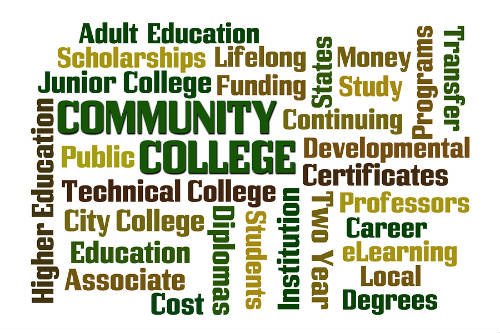To tackle high tuition expenses and save money on college, many students start off at an affordable two-year college, earn an associate’s degree, and then transfer to a four-year college or university where they earn their bachelor’s degree.
In my book, College Secrets, I call this process the “two-step” college option. And for strategic, focused students who attend school full-time, you can sometimes drastically cut your higher education expenses since tuition at community colleges is normally a fraction of what you’ll pay at four-year schools.
According to the College Board’s Trends In College Pricing survey, in the 2014-2015 academic year, tuition and fees averaged as follows among schools nationwide:
Type of School |
2014-2015 Tuition and Fees |
Public Two-Year In-District |
$3,347 |
Public Four-Year In-State |
$9,139 |
Public Four-Year Out-of-State |
$22,958 |
Private Non-profit Four-Year |
$31,231 |
For-Profit |
$15,230 |
Based on those numbers alone, it may seem like a no-brainer to take the community college route when you’re fresh out of high school, or you’ve decided to go back to school to pursue a degree.
But you do need to be aware of certain downsides of starting at a two-year school, as well as the various risks associated with transferring to four-year campuses.
Here are some the drawbacks to consider when you’re thinking of transferring from community college to a four-year college or university.
Drawbacks of Transferring from Community College to a University
Among the drawbacks of first attending community college: you won’t experience immediate immersion into the campus culture at the four-year university from which you eventually hope to graduate.
So it can sometimes be harder to make friends, get involved in campus clubs and activities, or just “fit in” when you’re coming to a college as a junior (or in your third year) and most of your classmates have been at the school for two previous years.
Another, more important downside: not every four-year institution will accept full college credit from every two-year campus.
A study by professors at City University of New York provides a sobering glimpse into what happens when many students move between two-year and four-year colleges. According to the study:
- Just 58% of community college transfer students were able to keep 90% or more of their credits
- 28% of transfer students lost between 11% and 90% of their credits
- The remaining 14% of community college transfer students were only able to transfer 10% or less of their credits to a four-year college.
There are other academic and financial risks inherent in being a transfer applicant.
Because most four-year colleges only have a select number of yearly slots for transfer applicants, the admissions criteria for these students is often much stricter, and grades matter more than ever.
As a transfer student, all the stuff you did in high school becomes far less relevant and the academic work you did at the junior college dominates in importance over everything else. So unless you have really great grades from a community college, you may find it more difficult to transfer than you anticipated.
Financial Risks Of Being a Transfer Student
Additionally, transferring from one college to another can sometimes cost you more money in the long run if you don’t complete your studies in four years. Unfortunately, that’s often the case for students who attend multiple schools.
According to a report called “Completing College: A National View of Student Attainment Rates,” conducted by the National Student Clearinghouse Research Center, only 40% of students who start at two-year public institutions obtained a bachelor’s degree within a total of six years.
By contrast, 63% of students who start their studies at four-year public colleges and 73% of students who commence their education at four-year private schools graduate in six years.
So if you do utilize the “two-step college option,” you must be very strategic about this method and do some advanced planning to ensure a smooth, speedy transition.
Thankfully, there are three great ways you can do just that. I’ll share those strategies in one of my next articles.








